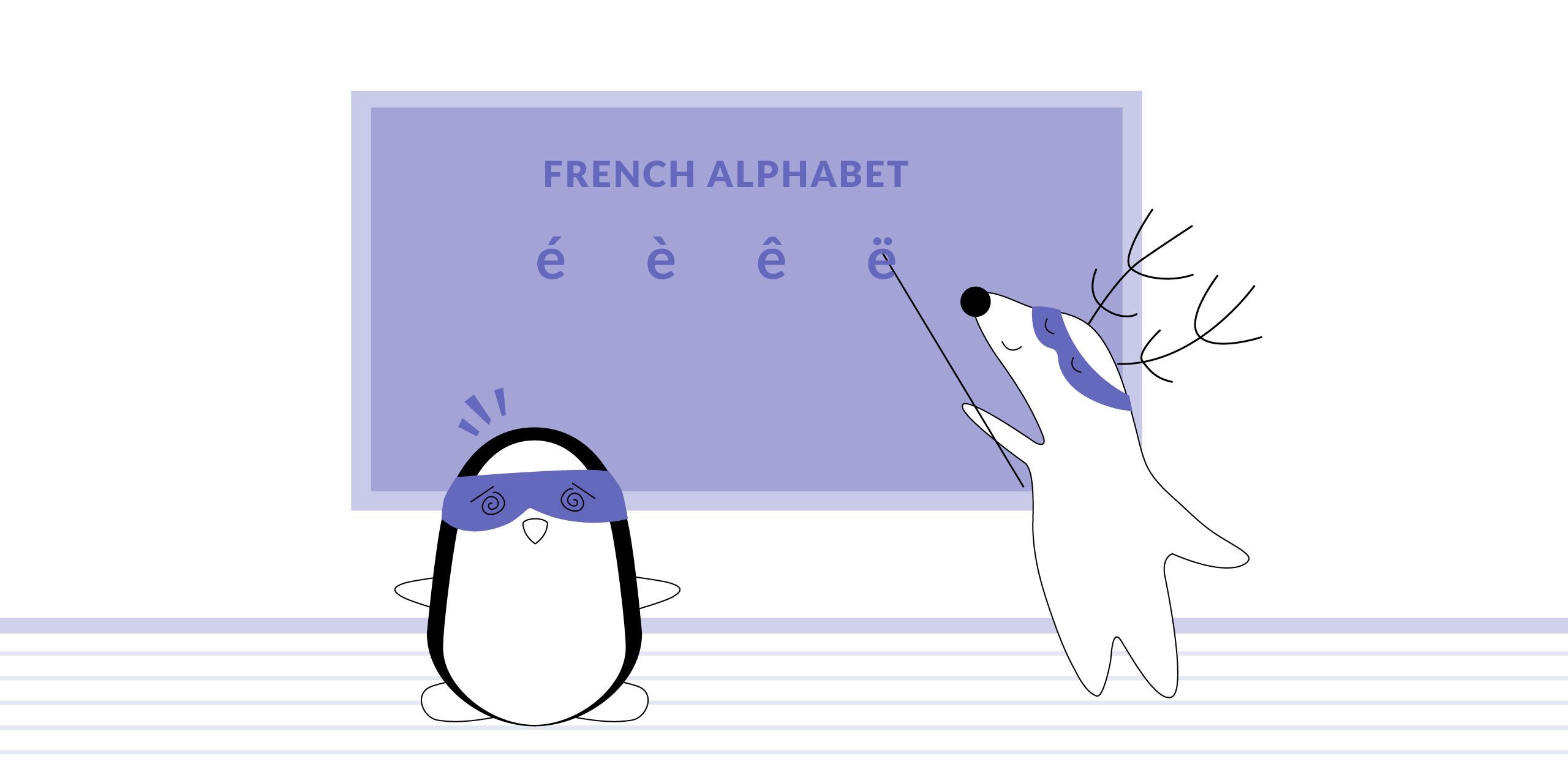
Ah, l'amour! The French language, often associated with romance, carries an inherent charm that has captivated hearts around the world. It is the music of love, the symphony of passion, and the honeyed whisper of longing.
Among the many expressions it offers, saying "I miss you" holds a special place. It is a sentiment that echoes the depth of human connection, resonates with the intensity of longing, and reaffirms the bond of love and affection.
Whether you're a star-crossed lover in a long-distance relationship, a traveler longing for home, or a student of the language eager to deepen your understanding, you will find value in these French words and phrases.
These are more than mere translations; they are bridges that span the gap between hearts, regardless of geographical distance.
Learn French with Langster
Tu me manques — the Most Common Way to Say “I Miss You” in French
One could start beaming with joy or sink into a deep longing with the phrase Tu me manques.
Arguably the most basic way to say "I miss you" in French, the verb manquer is even used in a renowned quote by the French poet and statesman Alphonse de Lamartine:
Un seul être vous manque et tout est dépeuplé. Sometimes, only one person is missing, and the whole world seems depopulated.
While it may seem simple to beginners, a subtle complexity lies beneath this phrase. The word order is reversed compared to English, resulting in the literal translation, "You're missing to me."
Let's break it down further:
French
English
Je te manque.
You miss me.
Tu me manques.
I miss you.
Similarly, the literal translation of Tu nous manques will be “you are missed by us,” meaning “we miss you.”
Choose the Correct Pronouns
This quirk in the French language is due to the inversion of the subject and the object of the sentence. The person who is missed becomes the sentence's subject, affecting verb conjugation.
Here’s a handy table:
| French | English | Explanation |
|---|---|---|
| Je te manque. | You miss me. | |
| Tu me manques. | I miss you. | Tu is the informal “you,” used when referring to one person only. |
| Il me manque. | I miss him. | |
| Elle me manque. | I miss her. | |
| Nous te manquons. | You miss us. | |
| Vous me manquez. | I miss you. | Vous is either the plural form of “you” or the formal “you” when referring to one person only. |
| Ils me manquent. | I miss them. | Ils is the subject pronoun for a group of men only or for a mixed group of men and women. |
| Elles me manquent. | I miss them. | Elles is the subject pronoun for a group of women only. |
| French | English | Explanation |
|---|---|---|
| Je te manque. | You miss me. | |
| Tu me manques. | I miss you. | Tu is the informal “you,” used when referring to one person only. |
| Il me manque. | I miss him. | |
| Elle me manque. | I miss her. | |
| Nous te manquons. | You miss us. | |
| Vous me manquez. | I miss you. | Vous is either the plural form of “you” or the formal “you” when referring to one person only. |
| Ils me manquent. | I miss them. | Ils is the subject pronoun for a group of men only or for a mixed group of men and women. |
| Elles me manquent. | I miss them. | Elles is the subject pronoun for a group of women only. |
The subject pronoun of the English sentence becomes the indirect object in French, coming second, just before the verb. Here’s how:
| French | English |
|---|---|
| Il me manque. | I miss him. |
| Il te manque. | You miss him. |
| Il lui manque. | He, she misses him. |
| Il nous manque. | We miss him. |
| Il vous manque. | You miss him. |
| Il leur manque. | They miss him. |
| French | English |
|---|---|
| Il me manque. | I miss him. |
| Il te manque. | You miss him. |
| Il lui manque. | He, she misses him. |
| Il nous manque. | We miss him. |
| Il vous manque. | You miss him. |
| Il leur manque. | They miss him. |
Note: lui can refer to either a male or a female. Depending on the surrounding context, it can signify "he" or "she."
Enhance with Adverbs
Once familiar with the structure of this French expression, you can intensify the feeling of longing by using adverbs:
French
English
Tu me manques beaucoup.
I miss you a lot.
Tu me manques déjà.
I miss you already.
Tu me manques tellement.
I miss you so much.
Tu me manques un peu.
I miss you a little, a bit.
Change the Tense
Now, how do you put the French verb manquer into different tenses? For simplicity, we will stick to the informal singular form of this expression, Tu me manques, in the example table below.
Let's delve deeper into these tenses:
| Tense | French Expression | English Equivalent |
|---|---|---|
| Present tense | Tu me manques. | I miss you. |
| Perfect tense | Tu m'as manqué. | I missed you. |
| Imperfect tense | Tu me manquais. | I missed you, I used to miss you, I was missing you. |
| Simple future tense | Tu me manqueras. | I will miss you. |
| Tense | French Expression | English Equivalent |
|---|---|---|
| Present tense | Tu me manques. | I miss you. |
| Perfect tense | Tu m'as manqué. | I missed you. |
| Imperfect tense | Tu me manquais. | I missed you, I used to miss you, I was missing you. |
| Simple future tense | Tu me manqueras. | I will miss you. |
The key thing to remember is that the pronouns remain unchanged across all tenses (phew!).
Mastering this phrase not only enriches your French vocabulary but also enables you to express your feelings more authentically and deeply. Here, you can also train your pronunciation while singing along to a popular song of the same name by Belgium-born singer Lara Fabian:
Saying “I Miss You, Too” in French

Are you prepared for another language twist? The positive response to “I miss you” in French is also switched around!
While in English, we might say, "I miss you, too," you need to think of it as "You too are missing from me" when composing the French version. So, here's how to properly convey a response to this sentiment:
French
English
Toi aussi, tu me manques.
I miss you, too.
Tu me manques aussi.
I miss you, too.
As you can see, depending on the speaker's preference, the phrase toi aussi (you too) can either precede or follow Tu me manques.
The reversal of the subject and the object continues in the reply, thus maintaining the distinctive allure of the French language.
Ça me manque de + Verb

This phrase incorporates the verb manquer as well, but in this case, it captures the longing to do something rather than missing a person or an object.
Therefore, it's followed by a verb in its infinitive form:
French
English
Ça me manque de te parler.
I miss talking to you.
Ça me manque de te voir.
I miss seeing you.
Ça me manque de rire avec toi.
I miss laughing with you.
Note that the pronoun Ça (that) is used to fulfil the specific grammatical structure demanded by the verb manquer. Ça acts as a placeholder for the grammatical subject in the sentence and represents the element that is being missed, which comes after the verb.
As seen in the example above, the sentence structure translates to: “That is missing to me to be talking to you.”
Alternative Ways to Say “I Miss You” in French

Here are even more poetic ways to say “I miss you” in French, which can be used in different contexts or situations:
| French Expression | English Translation |
|---|---|
| Je suis impatient de te voir. | I can't wait to see you. |
| J'ai hâte de te revoir. | I can't wait to see you again. |
| Vivement ton retour! | Can’t wait for your return! |
| Tu me manques tellement que ça fait mal. | I miss you so much that it hurts. |
| Mon cœur est vide sans toi. | My heart is empty without you. |
| Je suis perdu sans toi. | I am lost without you. |
| Chaque jour sans toi est un jour perdu. | Every day without you is a lost day. |
| Il te manque à ma vie. | You are missing from my life. |
| Ton absence me pèse. | Your absence is weighing on me. |
| Ma vie n'est pas la même sans toi. | My life isn't the same without you. |
| J’ai un vide dans mon cœur. | I have a void in my heart. |
| Ce n’est pas pareil sans toi. | It’s not the same without you. |
| French Expression | English Translation |
|---|---|
| Je suis impatient de te voir. | I can't wait to see you. |
| J'ai hâte de te revoir. | I can't wait to see you again. |
| Vivement ton retour! | Can’t wait for your return! |
| Tu me manques tellement que ça fait mal. | I miss you so much that it hurts. |
| Mon cœur est vide sans toi. | My heart is empty without you. |
| Je suis perdu sans toi. | I am lost without you. |
| Chaque jour sans toi est un jour perdu. | Every day without you is a lost day. |
| Il te manque à ma vie. | You are missing from my life. |
| Ton absence me pèse. | Your absence is weighing on me. |
| Ma vie n'est pas la même sans toi. | My life isn't the same without you. |
| J’ai un vide dans mon cœur. | I have a void in my heart. |
| Ce n’est pas pareil sans toi. | It’s not the same without you. |
Each of these phrases offers a different way to articulate the sentiment of missing someone — whether it’s a close friend or multiple people — thereby adding depth and richness to your expressions in French.
The Bottom Line

As we've explored, the phrase Tu me manques is just the tip of the iceberg when it comes to expressing longing in French. From mastering verb tenses and pronouns to exploring different phrases and their contexts, there are endless ways to convey this universal feeling in French.
With practice and an understanding of the language's nuances, you'll be able to use these expressions authentically and effortlessly, adding an extra layer of charm and elegance to your French communication skills.
So, go ahead, try out these phrases with your loved ones, and see how they respond! You can also try our Langster app to learn French with stories and expand your vocabulary!
Learn French with Langster









